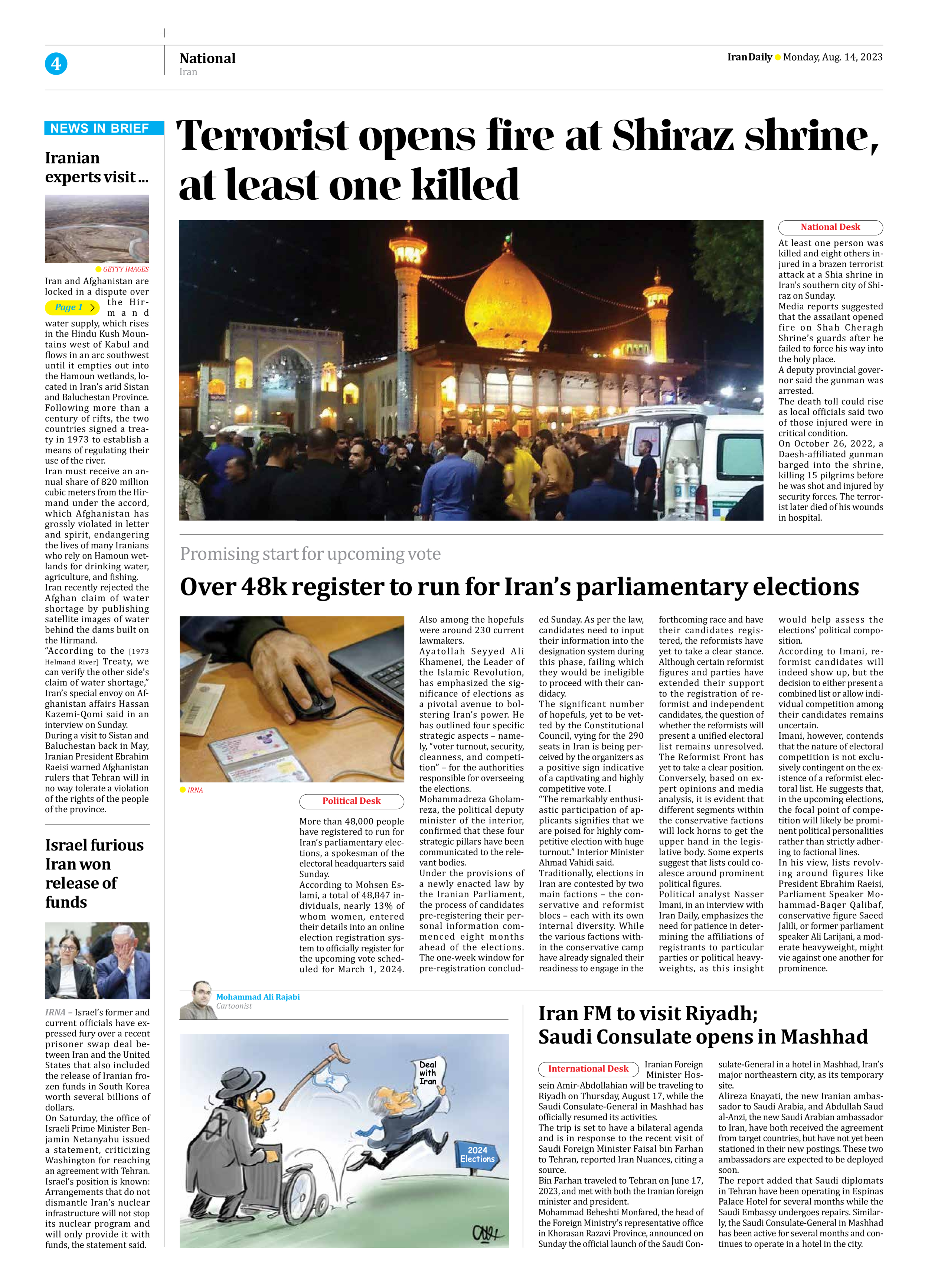
News in Brief
Iranian experts visit ...
Page 1
Iran and Afghanistan are locked in a dispute over the Hirmand water supply, which rises in the Hindu Kush Mountains west of Kabul and flows in an arc southwest until it empties out into the Hamoun wetlands, located in Iran’s arid Sistan and Baluchestan Province.
Following more than a century of rifts, the two countries signed a treaty in 1973 to establish a means of regulating their use of the river.
Iran must receive an annual share of 820 million cubic meters from the Hirmand under the accord, which Afghanistan has grossly violated in letter and spirit, endangering the lives of many Iranians who rely on Hamoun wetlands for drinking water, agriculture, and fishing.
Iran recently rejected the Afghan claim of water shortage by publishing satellite images of water behind the dams built on the Hirmand.
“According to the [1973 Helmand River] Treaty, we can verify the other side’s claim of water shortage,” Iran’s special envoy on Afghanistan affairs Hassan Kazemi-Qomi said in an interview on Sunday.
During a visit to Sistan and Baluchestan back in May, Iranian President Ebrahim Raeisi warned Afghanistan rulers that Tehran will in no way tolerate a violation of the rights of the people of the province.
Israel furious Iran won
release of funds
IRNA – Israel’s former and current officials have expressed fury over a recent prisoner swap deal between Iran and the United States that also included the release of Iranian frozen funds in South Korea worth several billions of dollars.
On Saturday, the office of Israeli Prime Minister Benjamin Netanyahu issued a statement, criticizing Washington for reaching an agreement with Tehran.
Israel’s position is known: Arrangements that do not dismantle Iran’s nuclear infrastructure will not stop its nuclear program and will only provide it with funds, the statement said.







